Interrailing in Europe is a rite of passage for travellers from across the world. The ticket can seem expensive but one country where it really pays off is Switzerland. You will save money when compared to booking individual trains for sure. However, there soon comes the realisation that you need to pay for everything else in Switzerland too. So, how do you save money on food in Switzerland? How do you save money on accommodation in Switzerland? Is Interrailing Switzerland on a budget even possible? We share all this and more!

This post may contain sponsored content or affiliate links that help support the blog. All opinions are our own.
Contents
A Few General Tips
Always Pay in Local Currency
This is for card payments. If anyone asks if you would like to pay in your home currency, decline. The exchange rate when you do this is always terrible, with the business pocketing the difference. Py in Swiss Francs and enjoy the better rate from your bank.
Bring a Fee Free Card
Get a card that allows you to use and to get money out in Switzerland with no additional charges. We love Revolut but this isn’t great for getting money out. There are plenty out there so do your homework before you travel. If at all possible, bring a selection of cards (Mastercard/Visa and debit/credit).
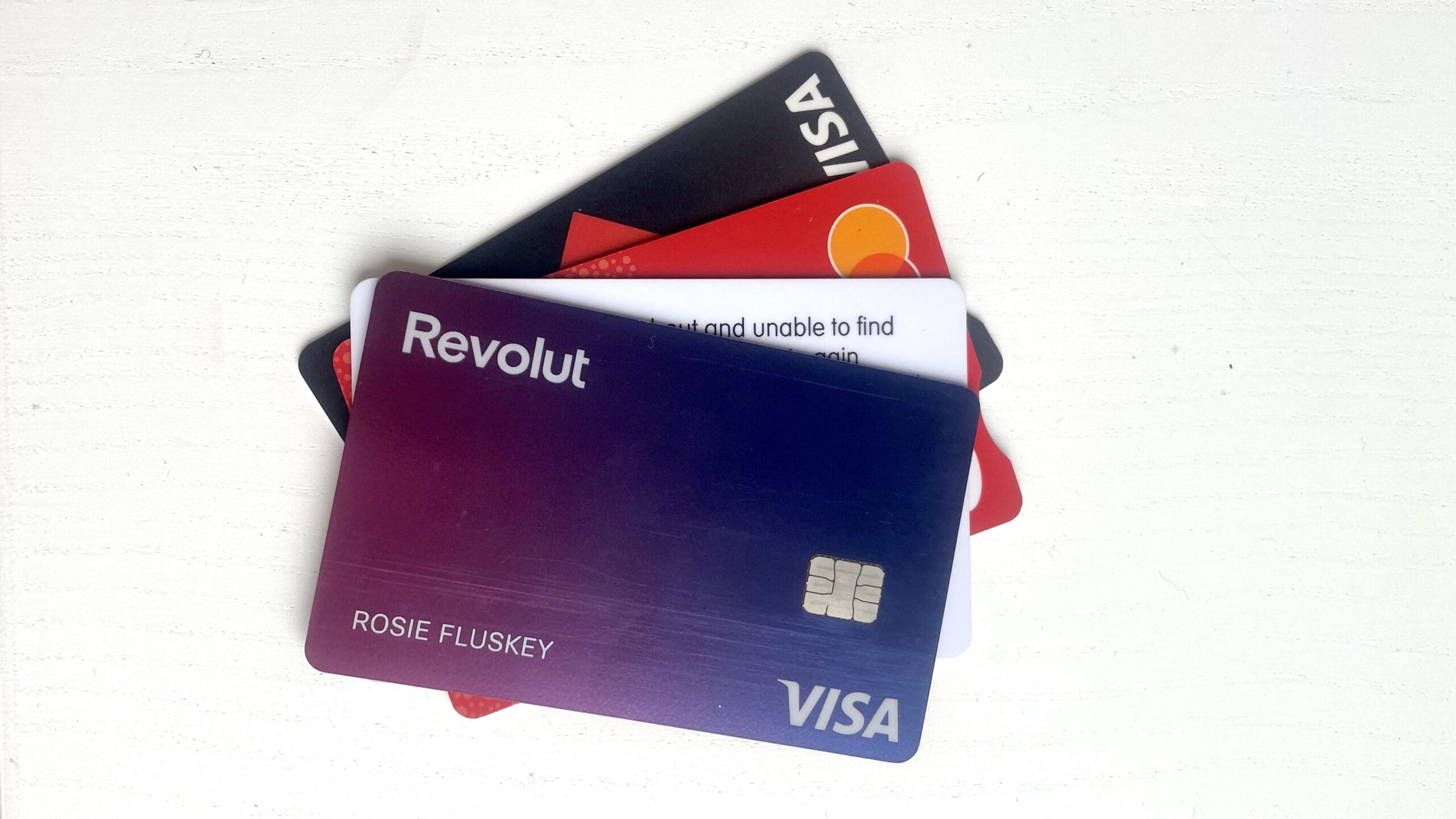
Plan Ahead
Yes, Interrailing does offer wonderful flexibility but if you are passing through expensive and/or popular spots in Switzerland then it is a good idea to book a few things in advance. Getting your accommodation sorted for the key points of the trip is a good start.
Make Sure You Have Travel Insurance
This is an initial financial outlay but trust us, you will be so grateful you have it if things go awry! You may have to pay out of pocket at the time but knowing they will be paying you back is so reassuring, especially in an expensive country like Switzerland. This is especially important if you are planning on doing any sports or adventure activities during your trip. We recommend EKTA for your insurance needs.
Get a Local Sim or an e-sim
Using your phone abroad can be expensive. If you are coming from outside the EU then Switzerland is no exception. Your phone provider probably charges a fair amount every day to use your phone in Europe. You have two better options. Either pick up a pay as you go local sim when you arrive. You will only really need data so look for the cheapest data-only sim you can. However, our preferred method is to get an e-sim. This can be done in advance (as long as your phone can use them) and activated on arrival. This saves the hassle of finding a phone shop and our favourite brand Airalo is great value.
How to Save Money on Transport in Switzerland
First Things First: Have An Interrail Ticket
If you have your main residence in Europe, the Interrail allows you unlimited train travel in 33 countries. This includes Switzerland. If your main residence is outside Europe, you benefit from the same discounts and opportunities with the Eurail Pass.
There are two main types of Interrail Passes:
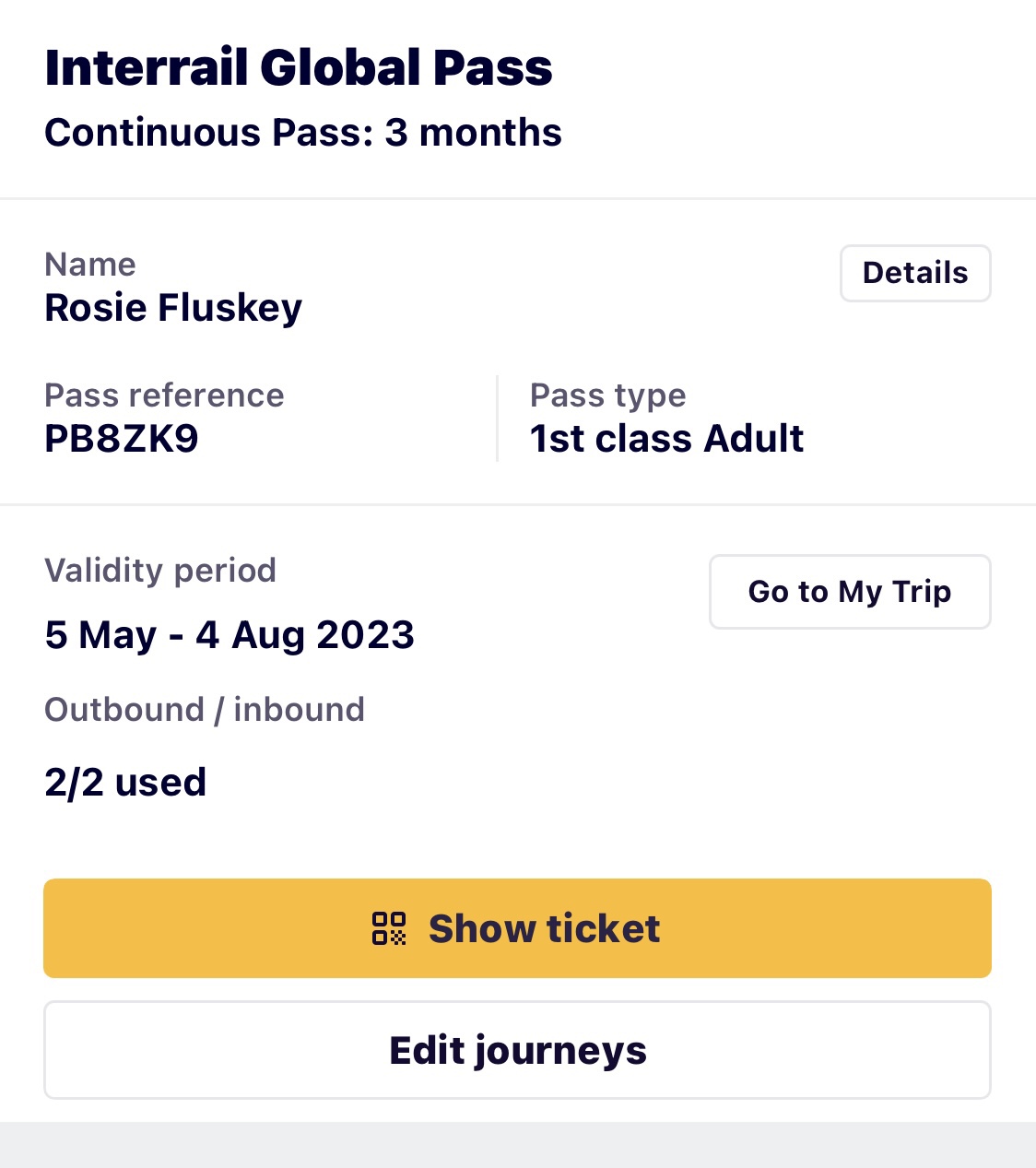
- The Global Pass – The Global Pass gives users the freedom to travel through all 33 countries included in the pass. The only exclusion is that only have one day to leave your home country and one to return. This is perfect if you have a long time to travel, want to see lots of different spots or want the flexibility to make a decision later on (even whilst travelling).
- The One Country Pass – The Switzerland Country Pass only allows you to travel within Switzerland This is ideal if you have a shorter trip, or want to explore Switzerland in more depth. Bear in mind that there is no unlimited travel option so you need to pick how many travel days and the length of pass you require.
If you haven’t already booked an Interrail ticket, use our link. It won’t cost you any extra but will help support the blog – BOOK NOW
Once you have booked your ticket, you are free to use local and regional trains free of charge on the days you have chosen as your travel days. This makes travelling around the country so easy and cheap. We used it to hop around the lake in Montreux, chopping and changing as we found new adventures along the way.

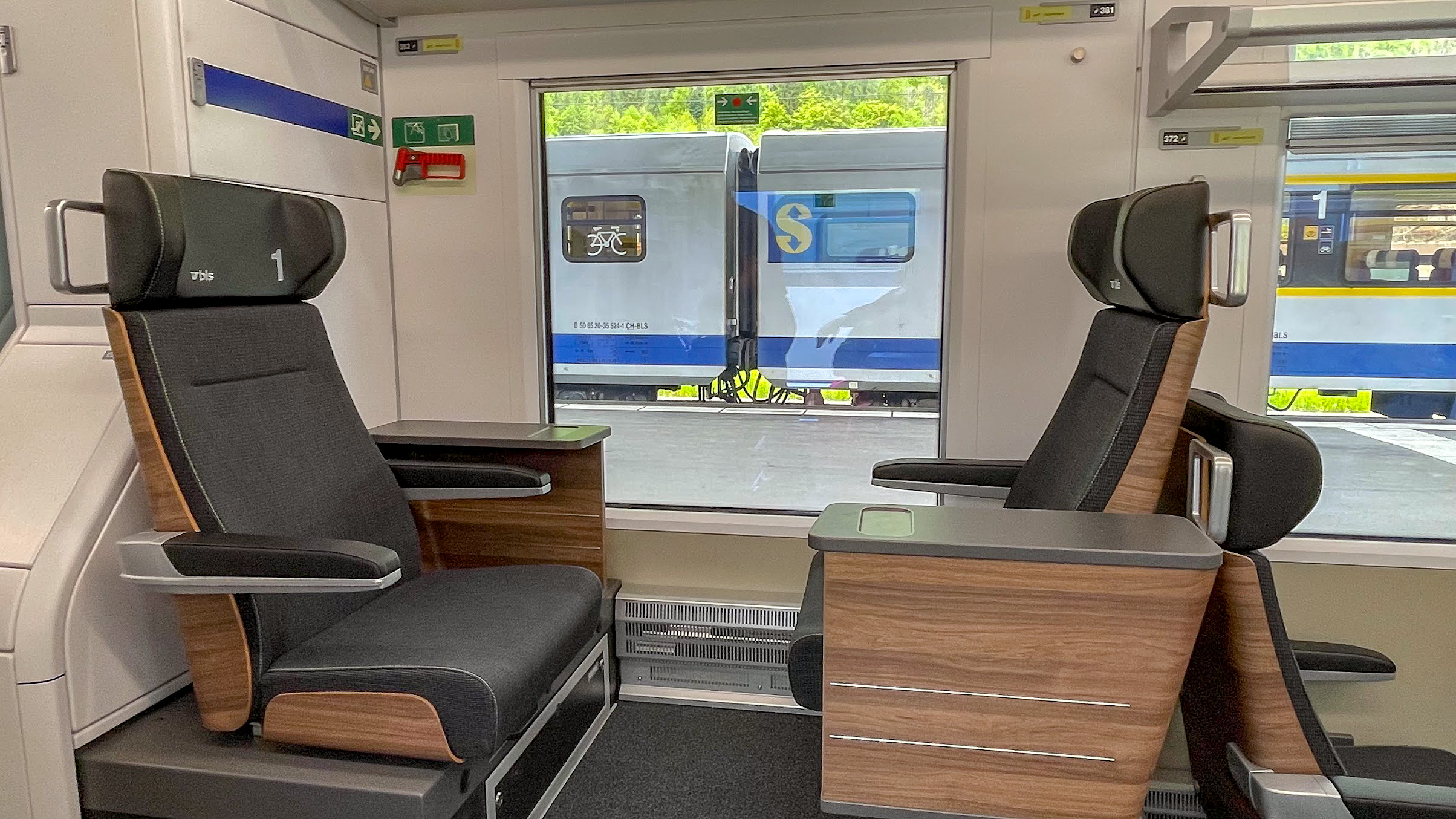
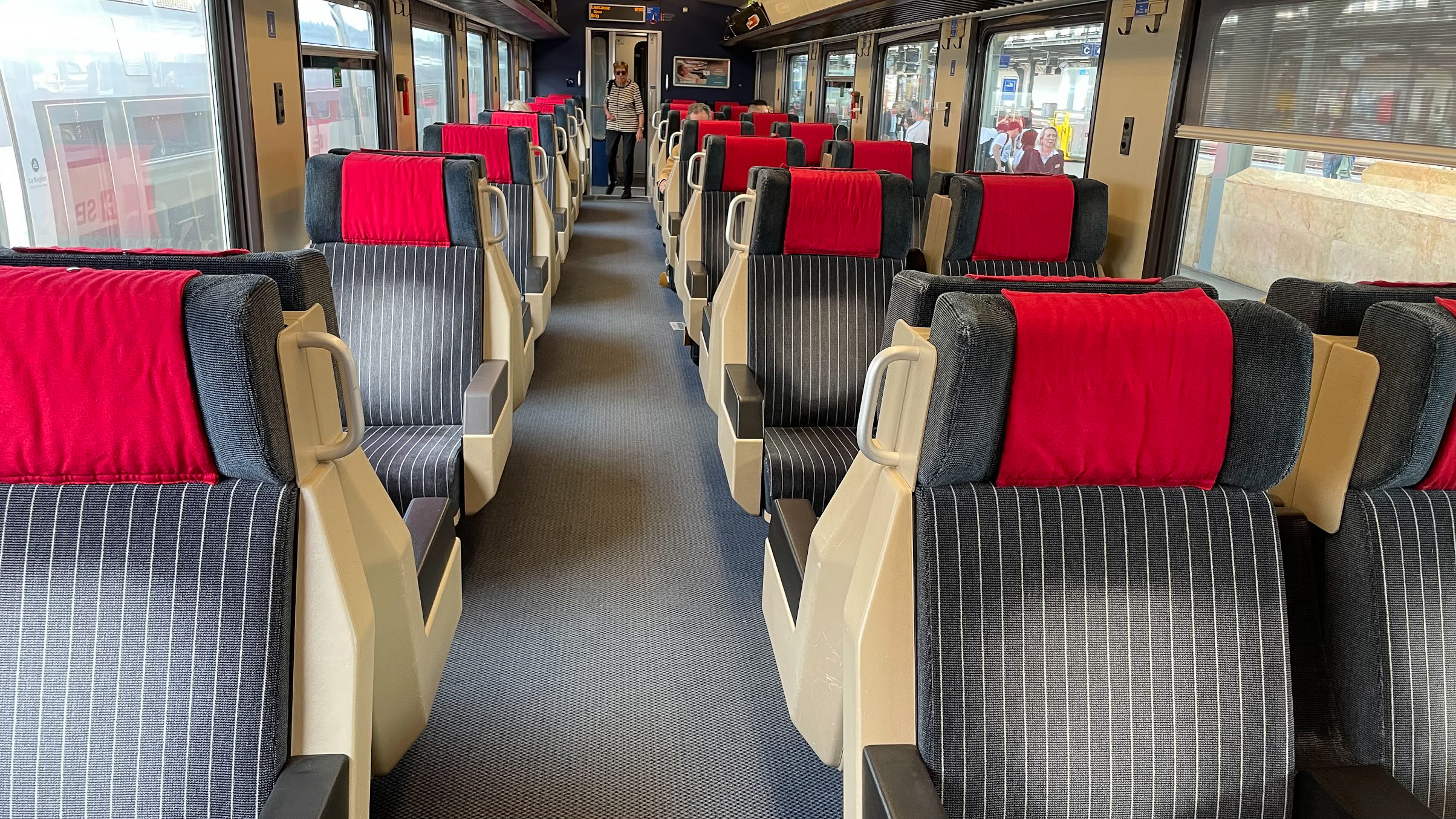
Hop on the Panoramic Trains
OK, so technically this doesn’t actually save you money BUT you will be amazed at the trains that are included with the Interrail Pass. You can have some truly special train rides without forking out for the wildly pricy Goldenpass Express and its other luxury brothers and sisters.
- The Belle Epoque – This runs between Montreux and Zweisimmen and has gorgeous 1930s style carriages, lined with wood and turquoise seats. It feels like something from an Agatha Christie novel and is included with the Interrail Pass. You could catch this one way, and hop on another train coming back again.
- GoldenPass Panoramic – The other train that plies the Montreux to Zweisimmen route is the GoldenPass Panoramic. This has windows that extend to the roof, with a couple more on the roof for good measure. These give wonderful views up the mountainside and across the valley of the journey. Combine these two trains and you have a great day out for free! (Bear in mind that these can get booked up in peak season so it might be worth paying the small reservation fee to guarantee a window if you really want one).
- The Bernina Express Line – Travelling on the actual Bernina Express will cost you a reservation fee, and it is a little steep. However, you can travel the same route (around the famous Brusio spiral viaduct) on local trains for nothing. Just ensure you have a Global Pass if you intend on travelling to Italy. If you only have the Swiss Country Pass, disembark in Campocologno.
- The Glacier Express – OK, OK, so this isn’t cheap, even with an Interrail Pass BUT you are going to save money if you have one. To ride on this iconic train, you’ll just need to pay the reservation fee. The ticket price goes up dramatically the further you travel but the reservation doesn’t so you can travel from St Moritz to Zermatt for just 49CHF or just do the short trip from Brig for 39CHF.
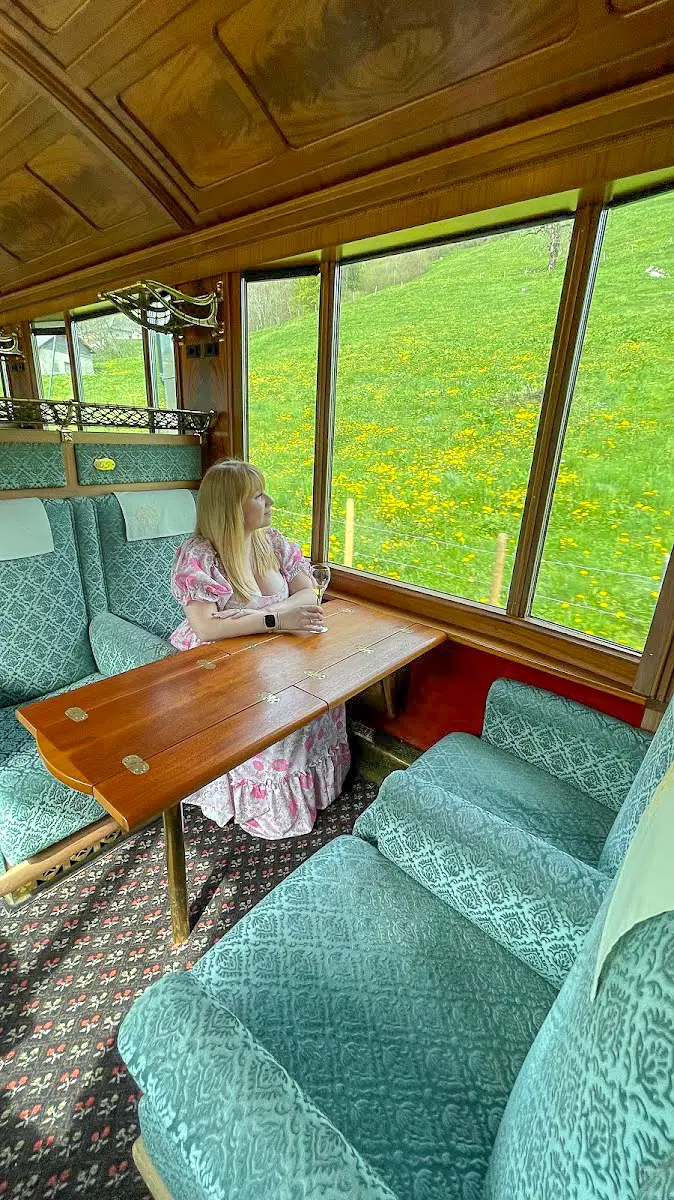
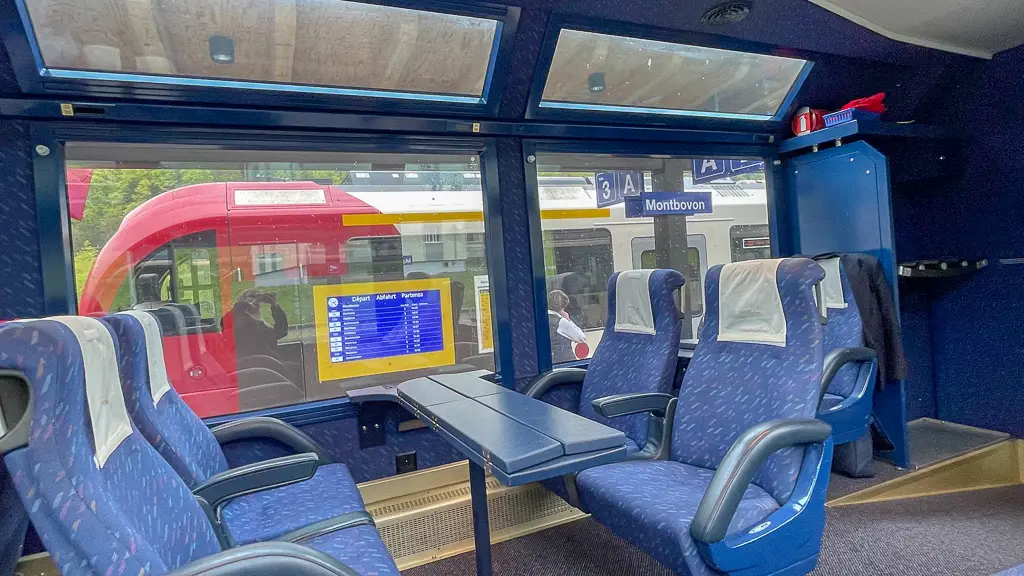
City Cards 1
When checking into hotels in much of Switzerland, you will be given a city card or region card for the duration of your stay. This can give you access to local travel. This is a great addition to your Interrail ticket because that doesn’t include teams, buses etc. For example, if you’re staying in Bern, Lucerne, Basel, Geneva or Lausanne, you get to use local public transport for free.
In Ticino, that’s Lugano and around, not only does it cover the local buses but gives you a discount on the cable cars, funiculars and boats in the region.
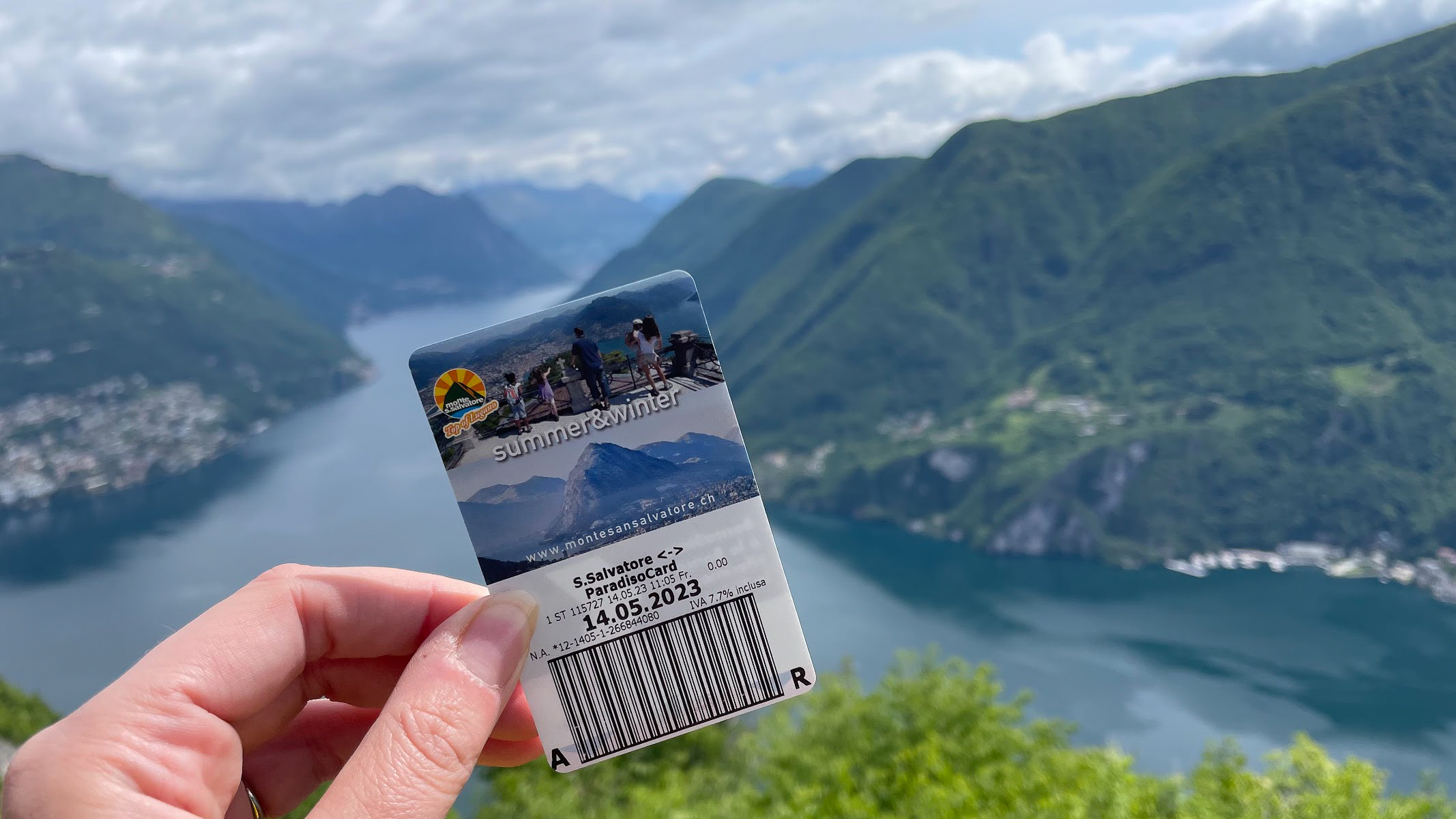
Take Advantage of Free Bike Rental
If you’re visiting Zurich, Bern, Geneva, Neuchâtel, Zug or Valais, then check out their free bike schemes. You can zip around town for free on pushbikes or e-bikes depending on your preference. Push bikes in Valais cost nothing for the first four hours so you could even take these for a scenic ride into the countryside. E-bikes and mountain bikes, however, start to charge after just one hour. The bike rental spots in Geneva, run by Genèveroule, require a cash deposit and an ID so make sure you have these to hand.

Take a Hike
One of the best ways to get around for free is to go on a big walk. Luckily, Switzerland is full of incredible hikes through stunning scenery. Use google or your hostel/hotel reception for advice on the best walks in the area you are staying in. To be honest, we didn’t do any hiking as it was unseasonably rainy, but we definitely plan to return and hit the hills!
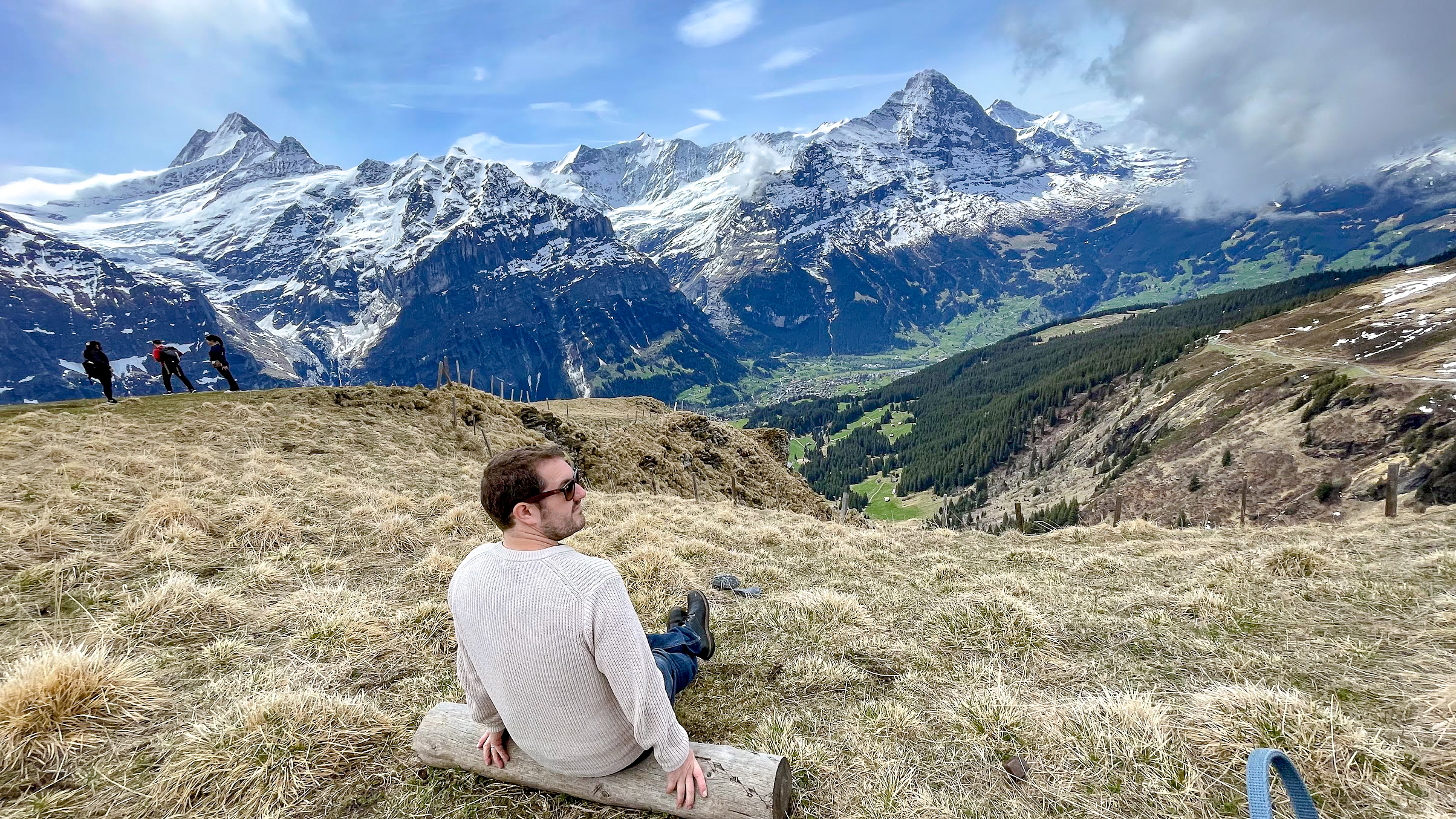
How to Save Money on Food in Switzerland
Download Too Good to Go
Too Good to Go is an app created to help reduce food waste, which is great, but it isn’t why e love it. For between 6 and 8 CHF, you can get enough food to fill up. The idea is that supermarkets, bakeries an restaurants send their. Fresh food either at the end of the day, or sometimes, at lunch. Launch the app and search for places around you that are offering food. Pay for it and go and pick it up at the allotted time. You can find baked goods, groceries that will end some proper cooing, things from the ready to eat fridges or even hot food from restaurants. In Switzerland, we had great big hot meals from the Migros hot counters and ready to eat cold food from Coop. Nothing cost us more than 7CHF, which is astonishing when the cheapest main meal we could find in the sit down restaurant was 16CHF.

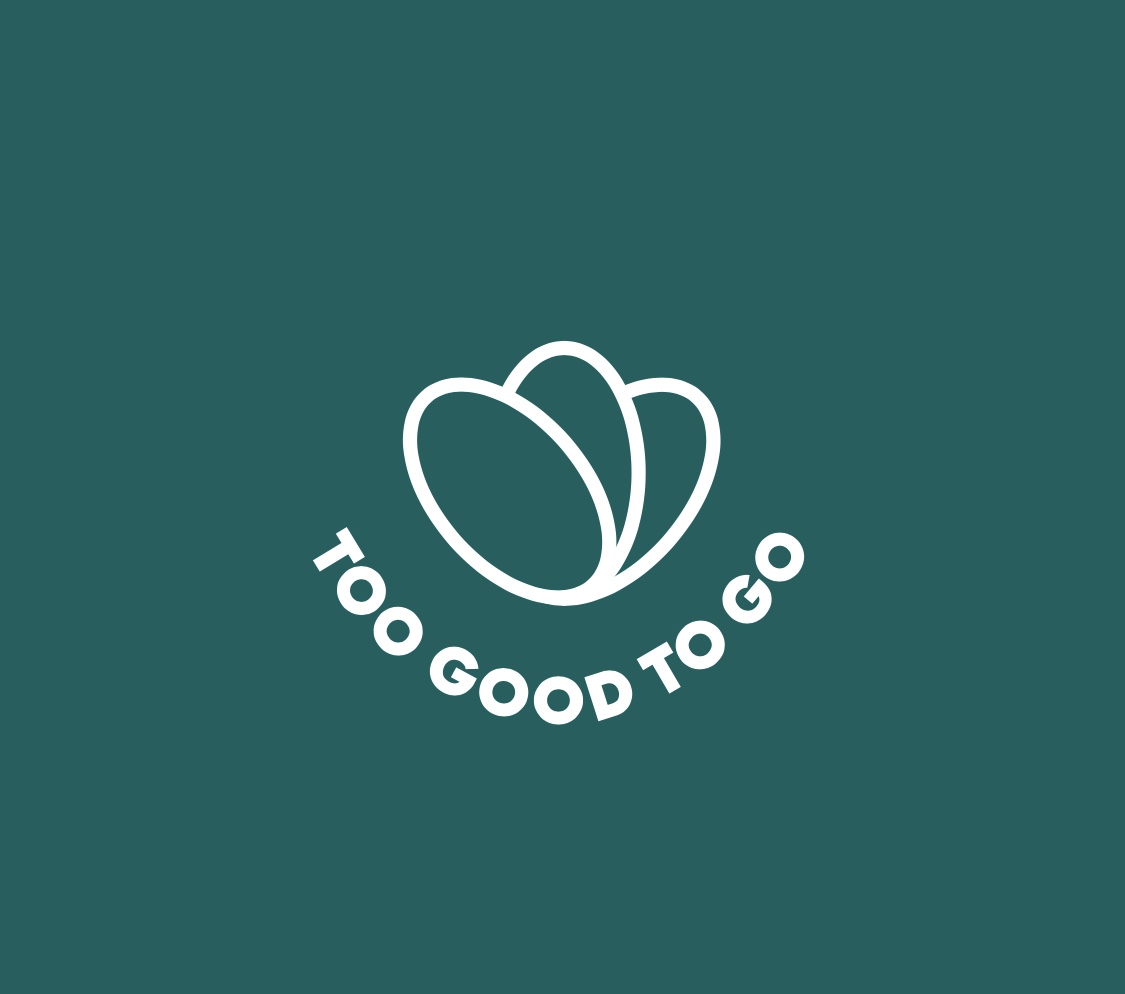

Cook Dinner for Yourself
The cheapest way to eat in Switzerland is to cook for yourself. This does rely on you having a kitchen in your accommodation, and most hotels will have one. At our hostel in Interlaken, there were lots of Korean travellers that cooked up a multi course feast in the kitchen every night. It was very impressive. We managed to boil up lots of pasta that worked for dinner hot and lunch the next day cold. (Don’t forget your Tupperware…silicone folding if possible to save space). Look out for Migros and Co op. Buying a loaf of bread, a block of cheese and a big packet of crisps is going to be cheap, cheerful and can make a few sandwich lunches. Look for red stickers for discounted food with best before dates that day.
For more Interrail packing ideas, check out our full Interrail packing list here.
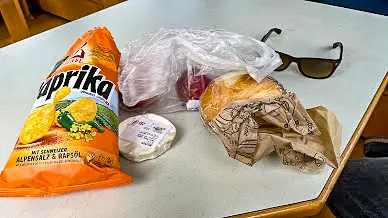
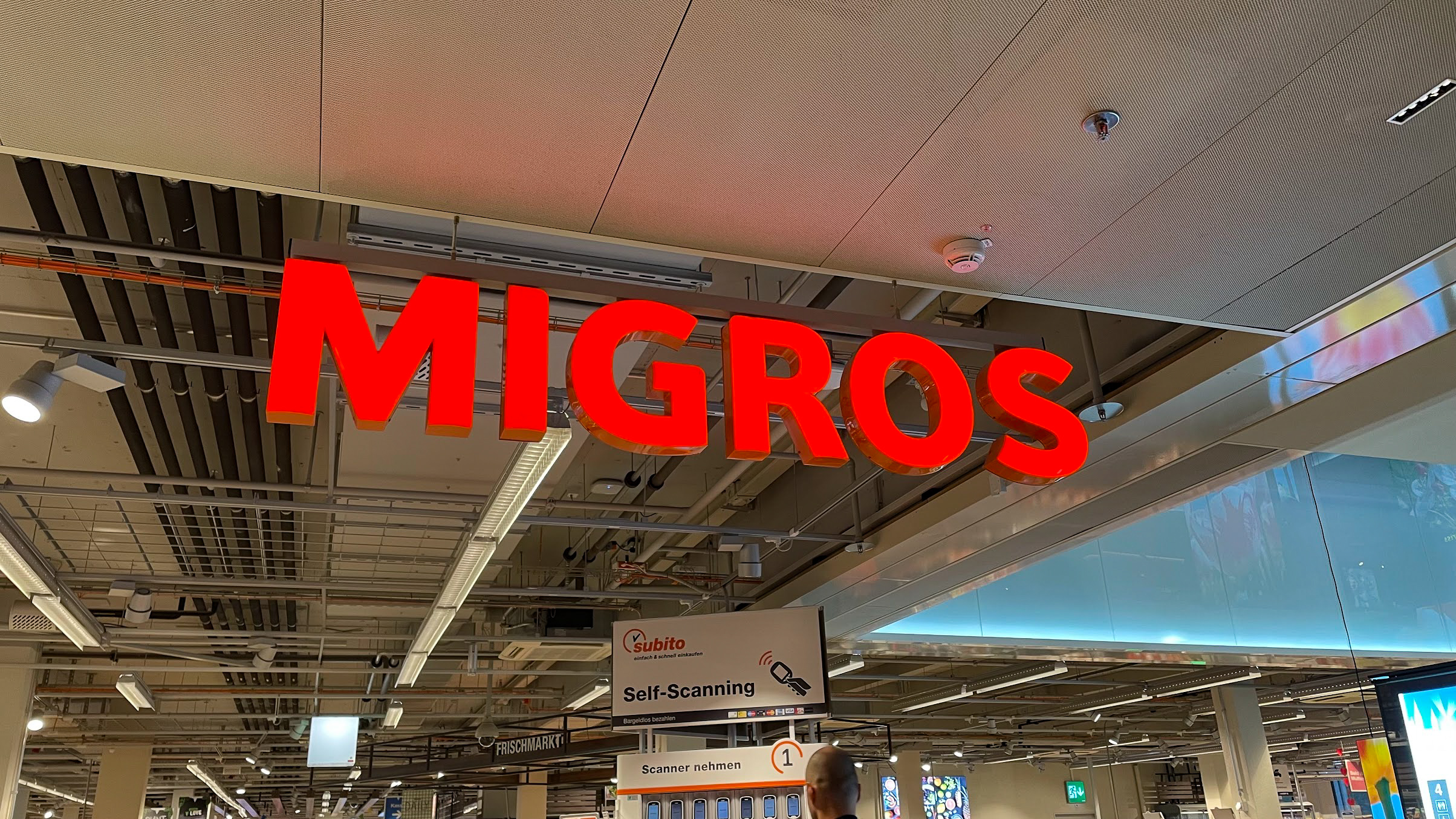
Opt For the Lunch Menu
If you fancy eating out in a restaurant then make it a lunchtime treat. Many popular restaurants have a plat du jour (dish of the day) which will be much better value than their dinner offerings. You are still looking at 25 – 30 CHF but that could be half the price of dinner. It is also much cheaper to eat the vegetarian option. It can be a whole third cheaper.
Scout Out Deals Near Universities
If there is a university or college in the place you are visiting then there is likely to be a few good meal deals around the area. Take a stroll in the district and see if you can uncover any bargains. Restaurants that serve international food tend to be a little cheaper so keep your eyes peeled for Thai, Chinese and Italian options. If all else fails, find a place to fill up on chips.
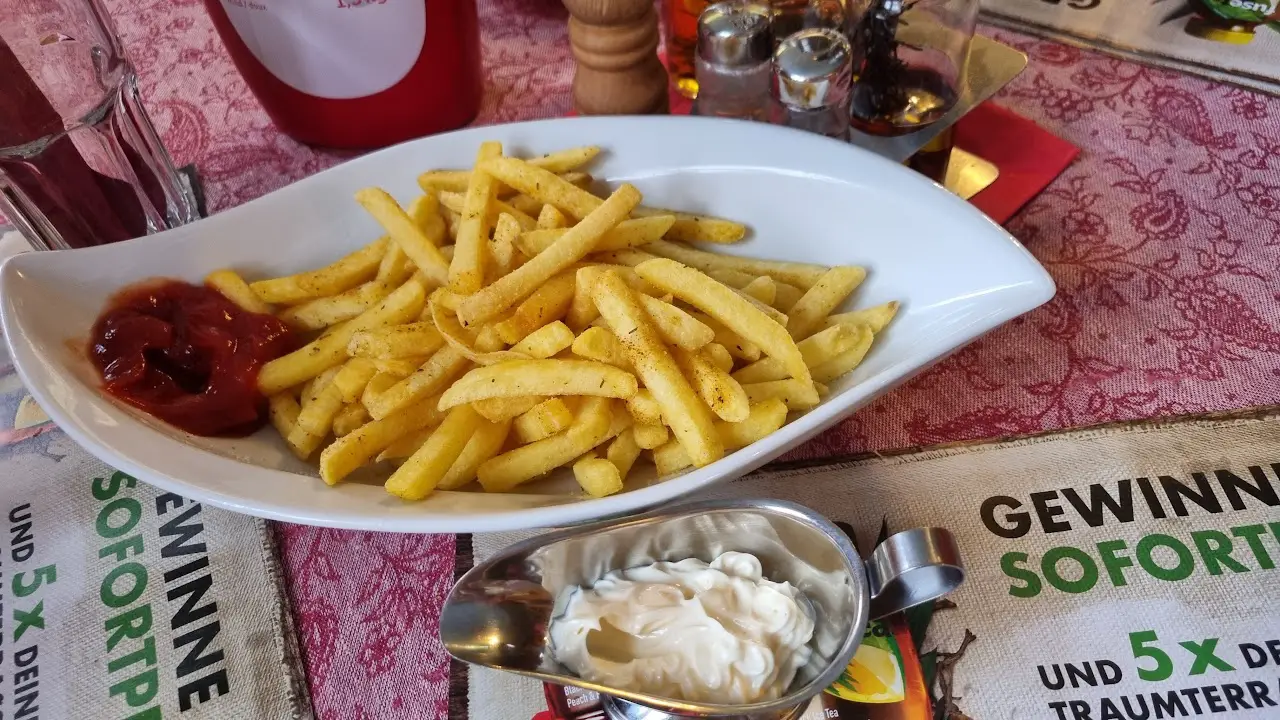
Enjoy the Free Tap Water
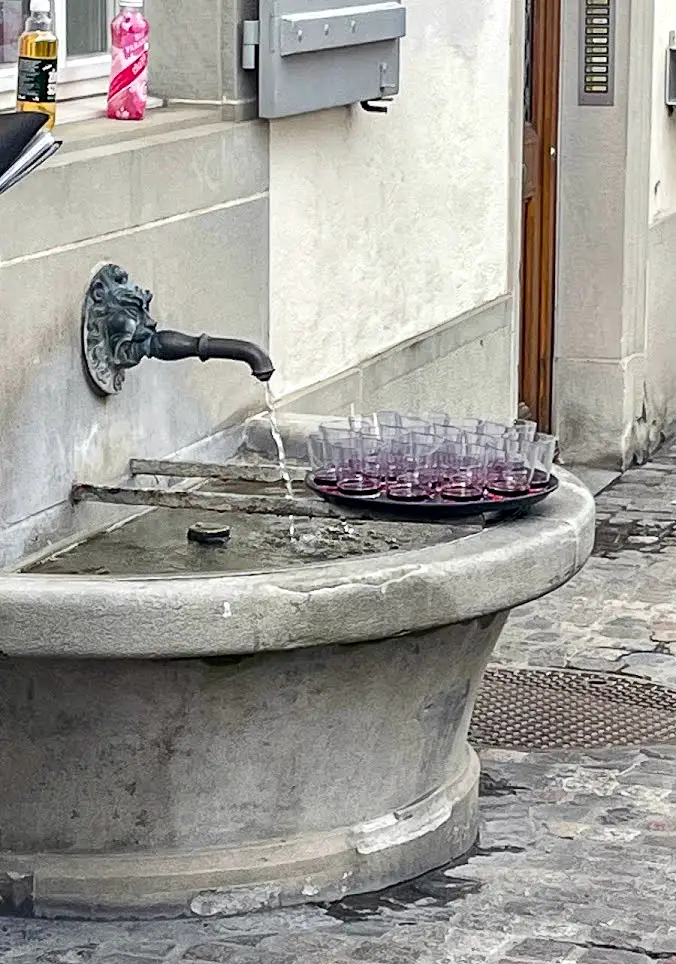
Tap water is safe to drink, and delicious, throughout Switzerland so ask for a jug when you eat out. This saves you from having to swig from your water bottle in the middle of the dining room. In German, ask for “Leitungswasser., In French, it’s “une carafe d’eau”.
You will also find free water fountains in plenty of Swiss towns, Zurich especially. You are safe to just fill up your water bottle for free drinks all day. We like to have squash drops to liven up the water on long days out.
Service is Included
Don’t forget that it is not mandatory to tip in Switzerland. On a large bill it is typical to round up a couple of Swiss Francs but the service charge is already built into the price of the food. TThis can feel uncomfortable when you are used to tipping 10-20% but it is totally fine to just pay the amount on the bill and leave.
How to Save Money on Accommodation in Switzerland
Visit in Shoulder Season
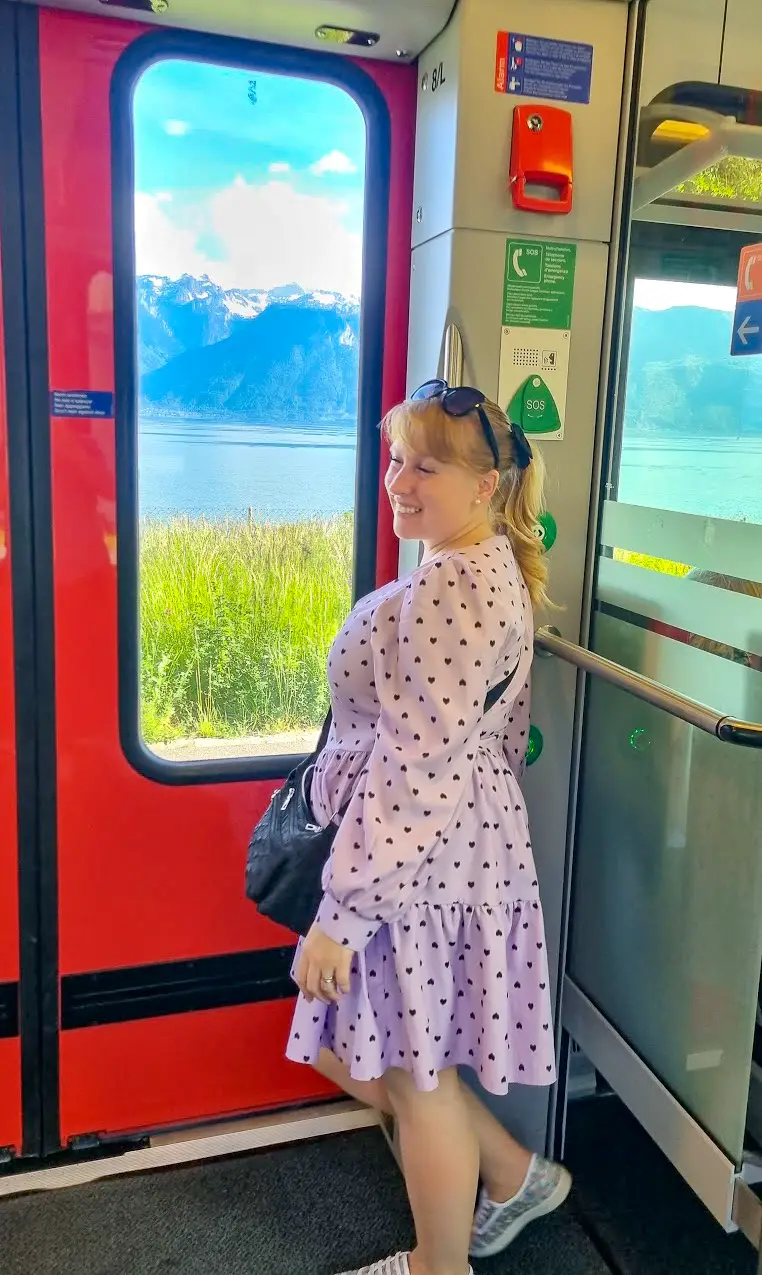
Switzerland has two major tourist seasons, winter and summer. The low seasons, or shoulder seasons, fall in spring and autumn. If you visit outside of the high seasons then you have a better chance of finding cheap accommodation. Just bear in mind that some places shut for a month in April and October so if you have your heart set on a certain hotel, this might not be an option.
Try Hostels
Don’t let the word hostel scare you. Swiss hostels are clean and excellently run. Many have private rooms and are more like a hotel than you might imagine. As well as having good value rooms, you will also find laundry rooms that are cheap or free to use, games rooms for free entertainment and well equipped kitchens for preparing your own meals. Most also include some sort of breakfast too. Of course, if you are happy to share dorm rooms, you will save a bundle of cash! Just bear in mind that some dorm beds don’t include bed linen or towels so you’ll need to bring these yourself.
We stayed in an excellent hostel in Interlaken, see the full review here.
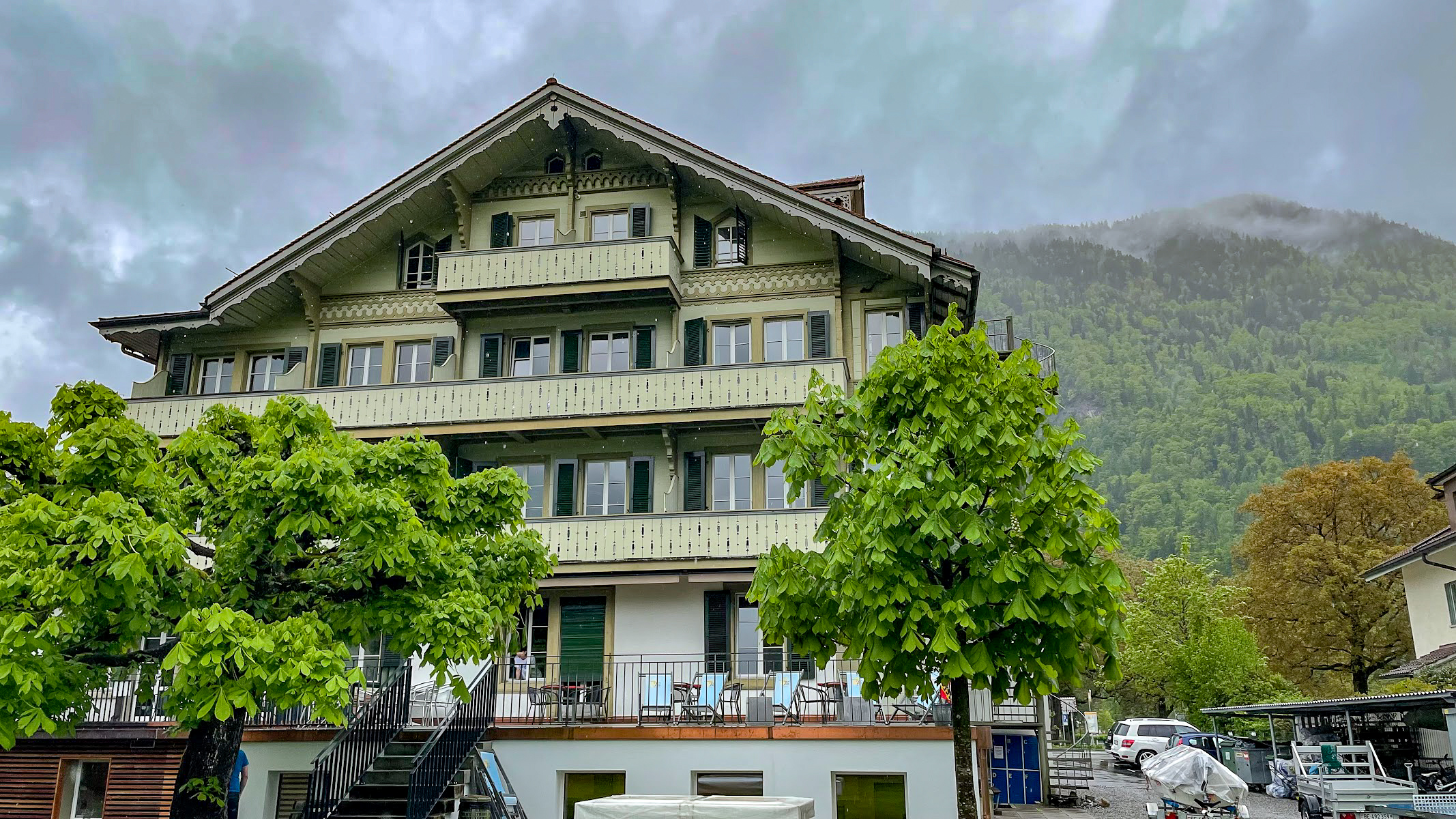
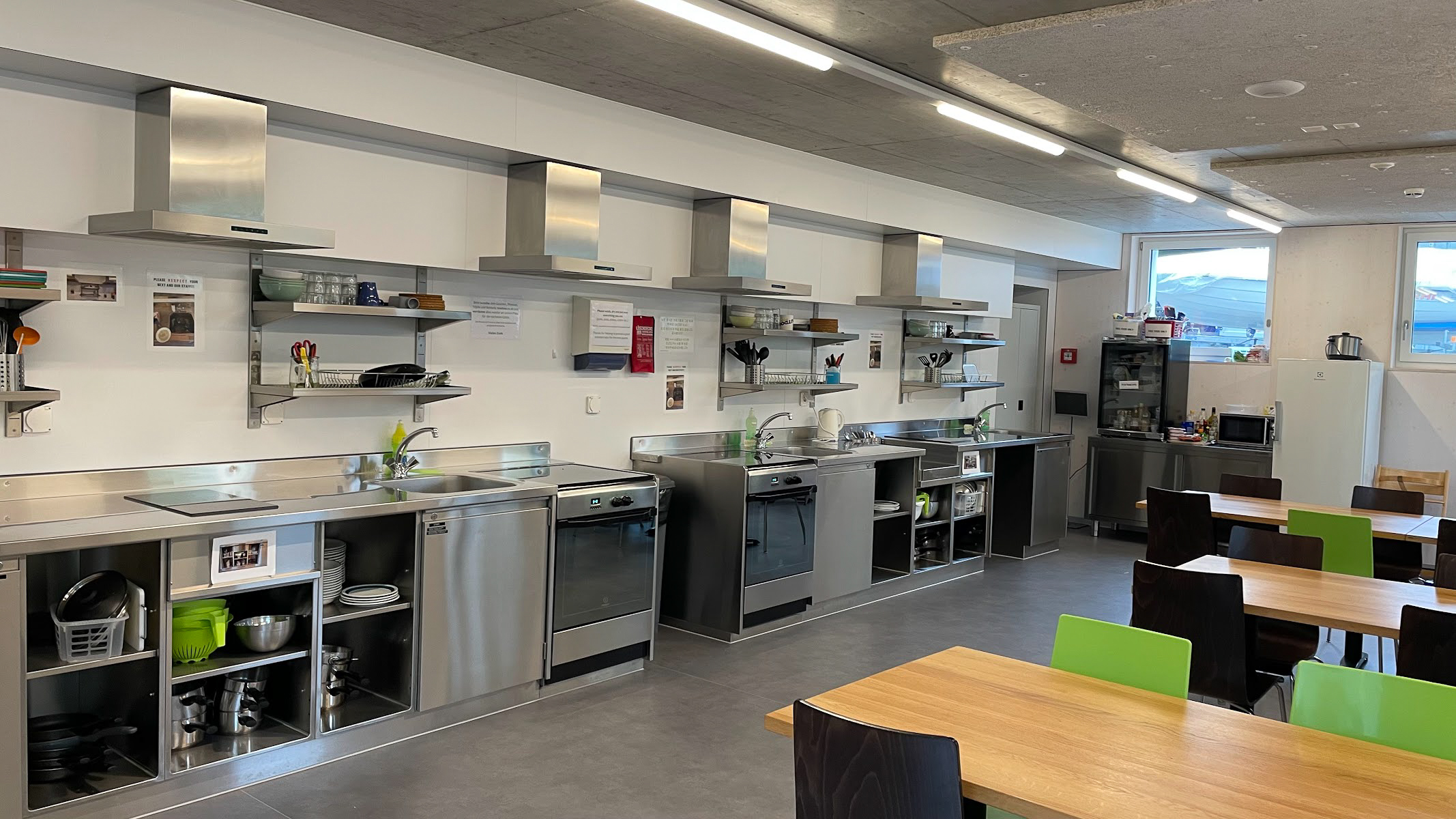
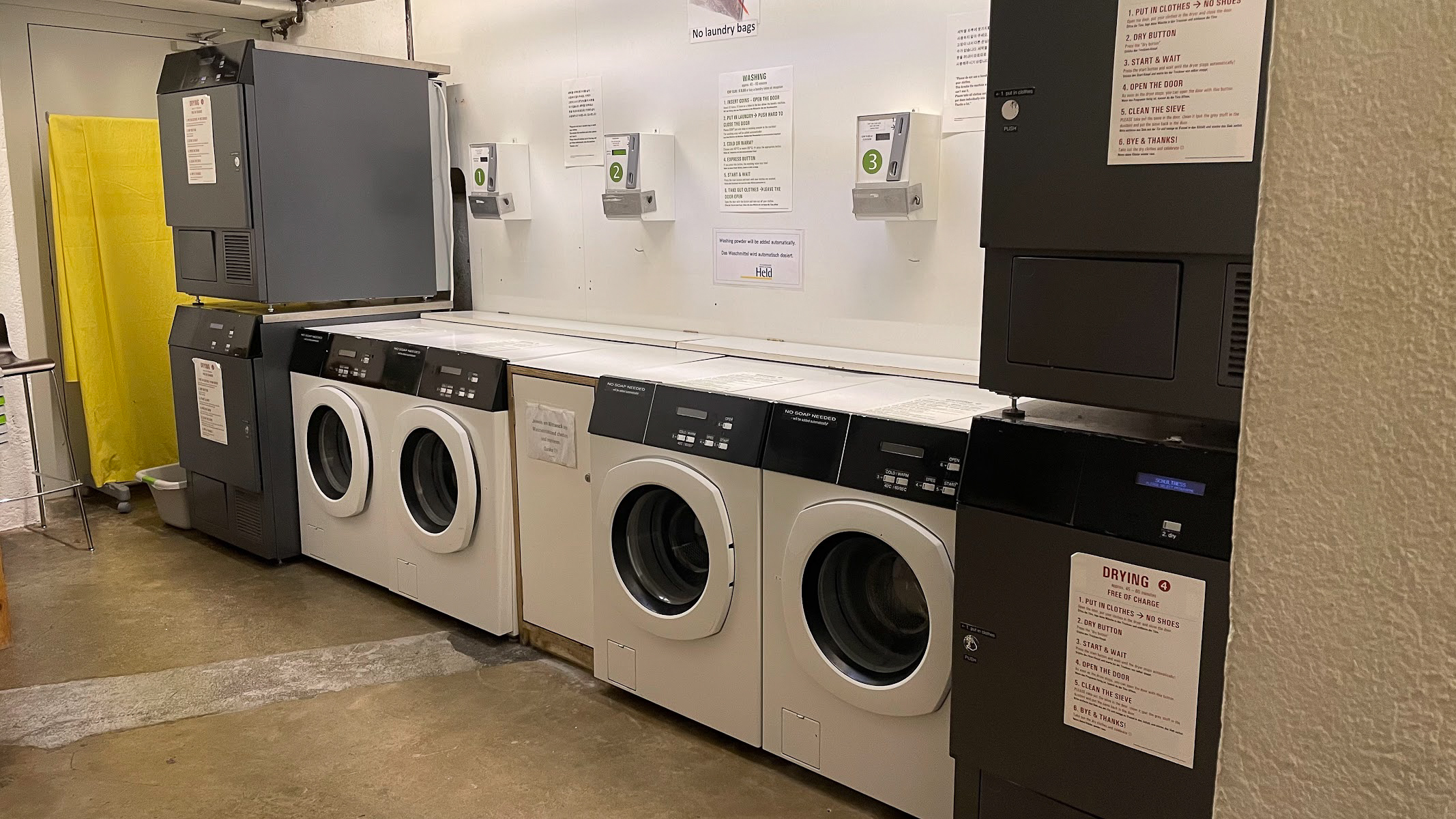
Find a Good AirBnB
AirBnB has been the budget travellers’ friend for a few years now, and although hiring whole apartments or houses can still be very expensive, booking a room in someone’s house is still a great budget option. In towns like Zermatt, you can find rooms with postcard views for much less than nearby hotels but these still aren’t what we would call cheap.
Hashtag Van Life
Of course, if you are Interrailing Switzerland, you might just want to take the train, but if you have limited travel days you might consider getting a camper van.
Transport and accommodation rolled into one, the camper van is another brilliant option. Many campsites are cheap to stay in and provide electrical hookups etc. for much less than a hotel room. Of course you need a driver’s license and the constitution to deal with your own toilet clearing but it does allow you to drive to some stunning places on your own schedule and take your bed with you. Do bear in mind that wild camping is illegal so you will need to park at a registered campsite.
Stay Off the Beaten Track
Staying in Zurich, Interlaken and Geneva is going to cost you more than in small nearby towns. The advantage of having your Interrail ticket is that you can reach these famous spots quickly and easily by train. You might not need to stay in these big cities at all. Accommodation in smaller towns is significantly cheaper so if you don’t mind the commute, you could save a fair whack.
How to Save Money on Activities in Switzerland
Interrail Freebies and Discounts
Interrail doesn’t just cover your train journeys, it can also provide some other fun, free activities. For example, if you’re visiting Interlaken, your Interrail Pass provides free boat trips on both Lake Thun and Lake Brienz. You can take these two hour boats to some seriously beautiful spots which is a fun day out for nothing,
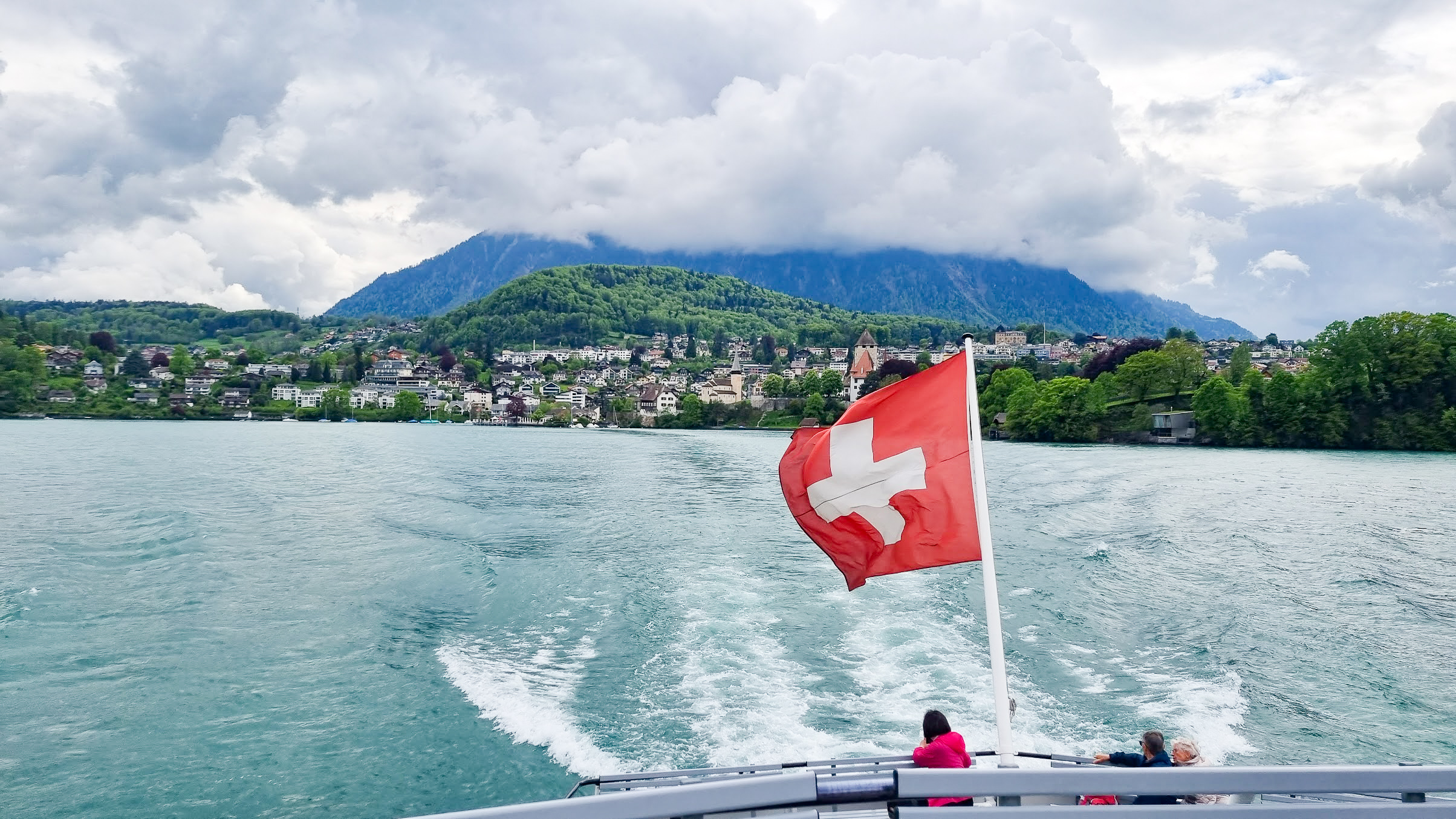
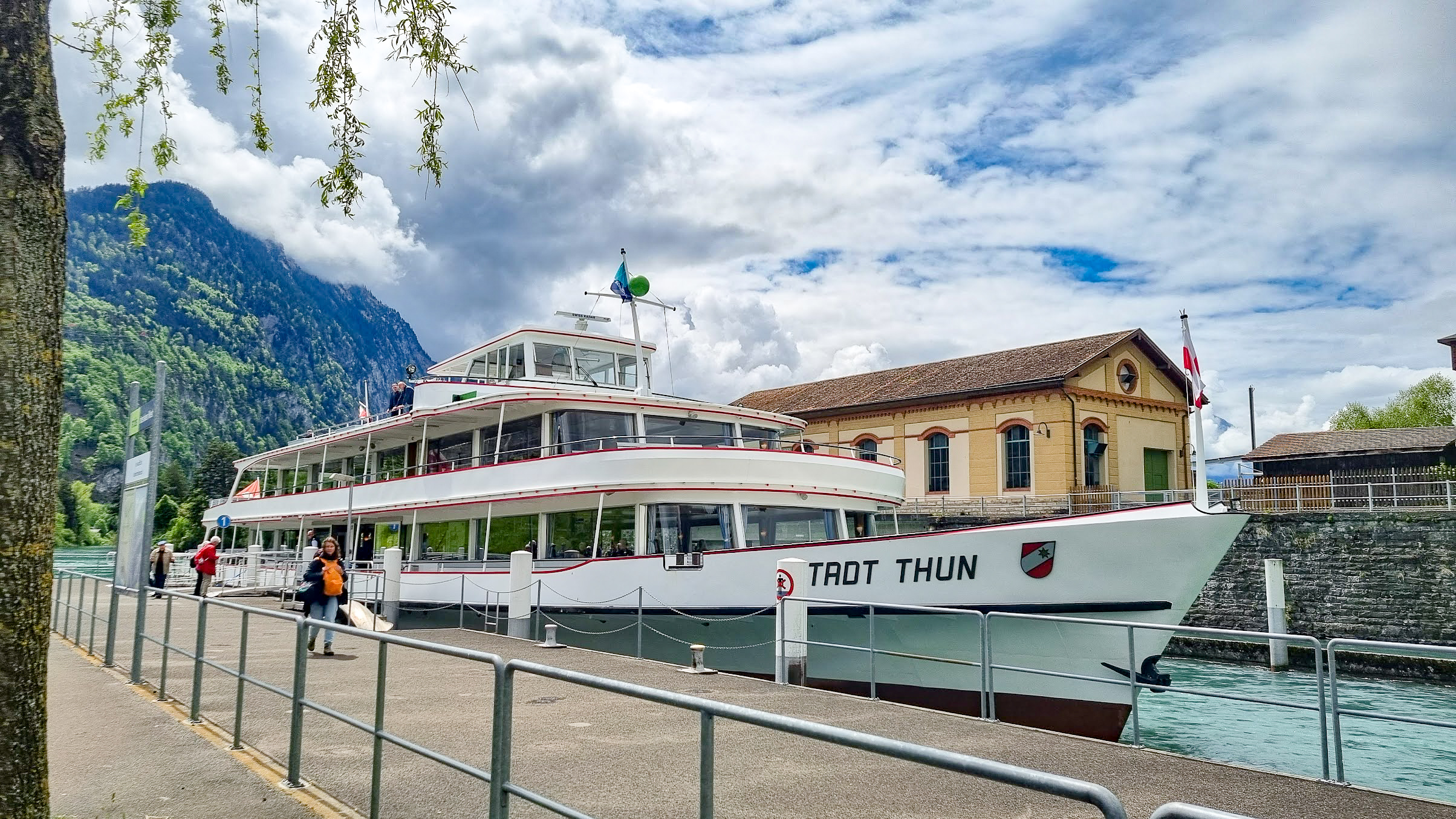
You will also find a few discounts on funiculars or special trains across Switzerland like 25% off on the Jungfrau railway up to the Top of Europe.
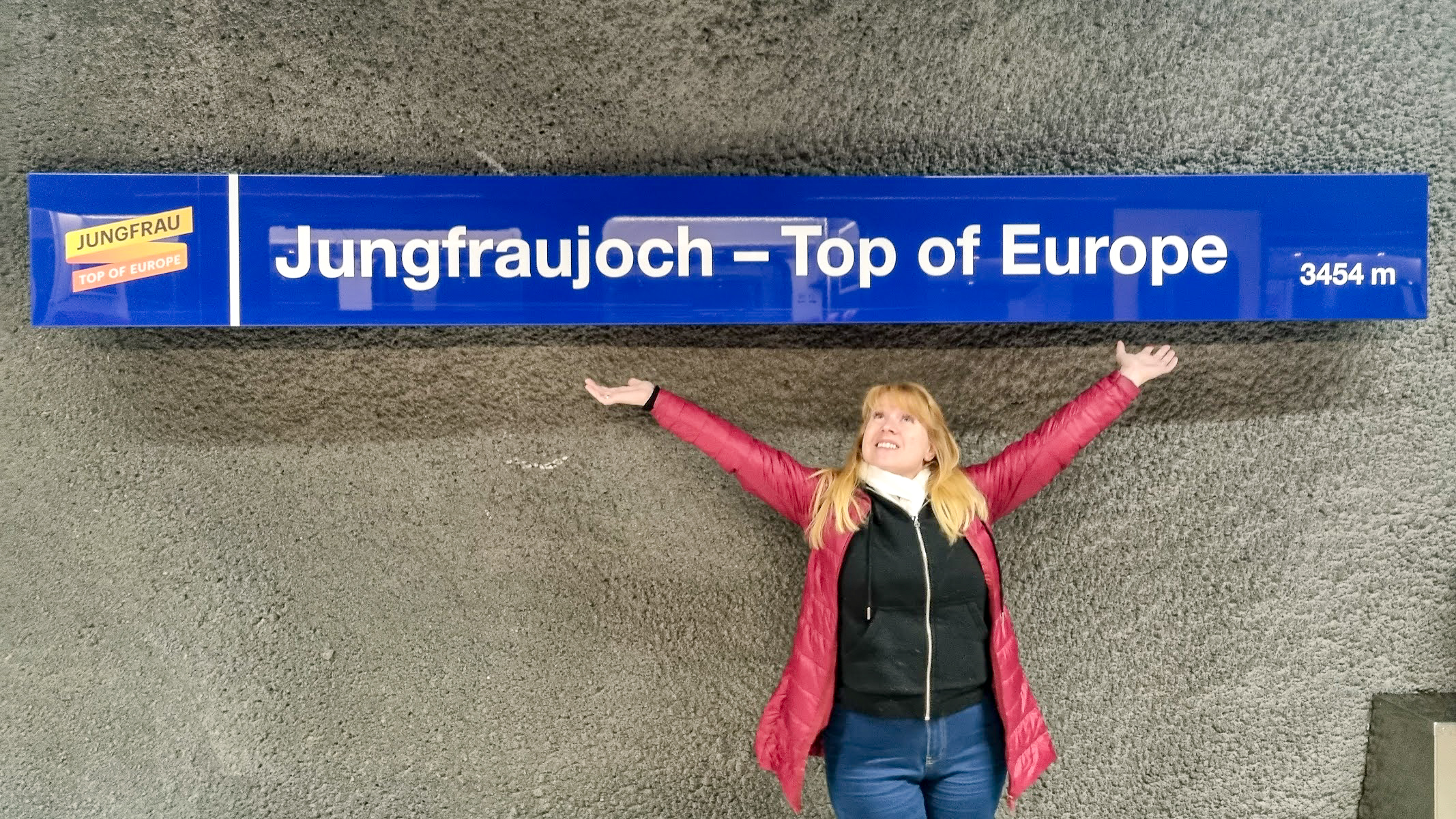
Guest Cards 2
Some of the guest cards you receive from your accommodation (hotels and hostels) will offer more discounts on funiculars or cable cars in the region or local area. Interlaken’s includes a free walking tour, free or discounted entry to nearby museums and free entry to a local swimming pool and mini golf. Others across Switzerland have museum discounts (up to 50%), discounts on the numerous funiculars and cable cars that are everywhere in Switzerland and even the odd discount in a cafe so it’s worth checking them out for each area you are staying in.
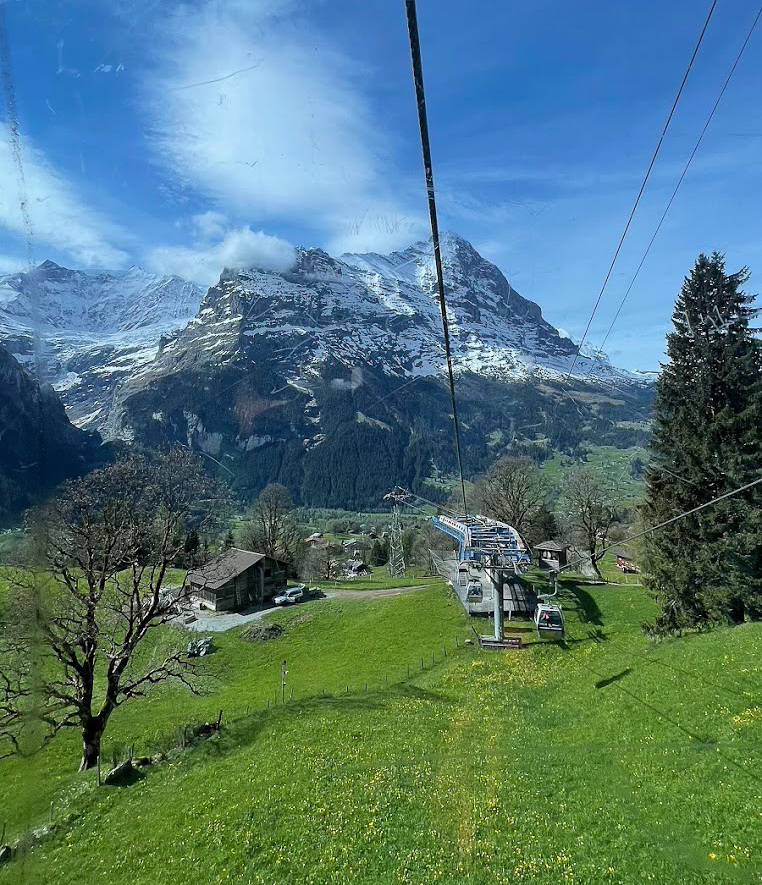
Free Walking Tours
As with most of Europe, you can find decent walking tours in many of Switzerland’s main towns. Of course, these are not totally free as it is encouraged to tip the guides (they are guiding for tips) but compared to a paid tour, where you may also want to tip, they are decent value. Companies like Free Walking Tours Switzerland offer tours across the country.
Final Thoughts on Interrailing Switzerland on a Budget
Let’s be honest Interrailing Switzerland on a budget is hard work, and it can get a bit tedious. But if it allows you to travel for longer, it is definitely worth it. Unlike many countries, the beauty of Switzerland doesn’t lie in the big cities. So getting out into nature with a hunk of bread and some cheese really is the best way to spend your time.
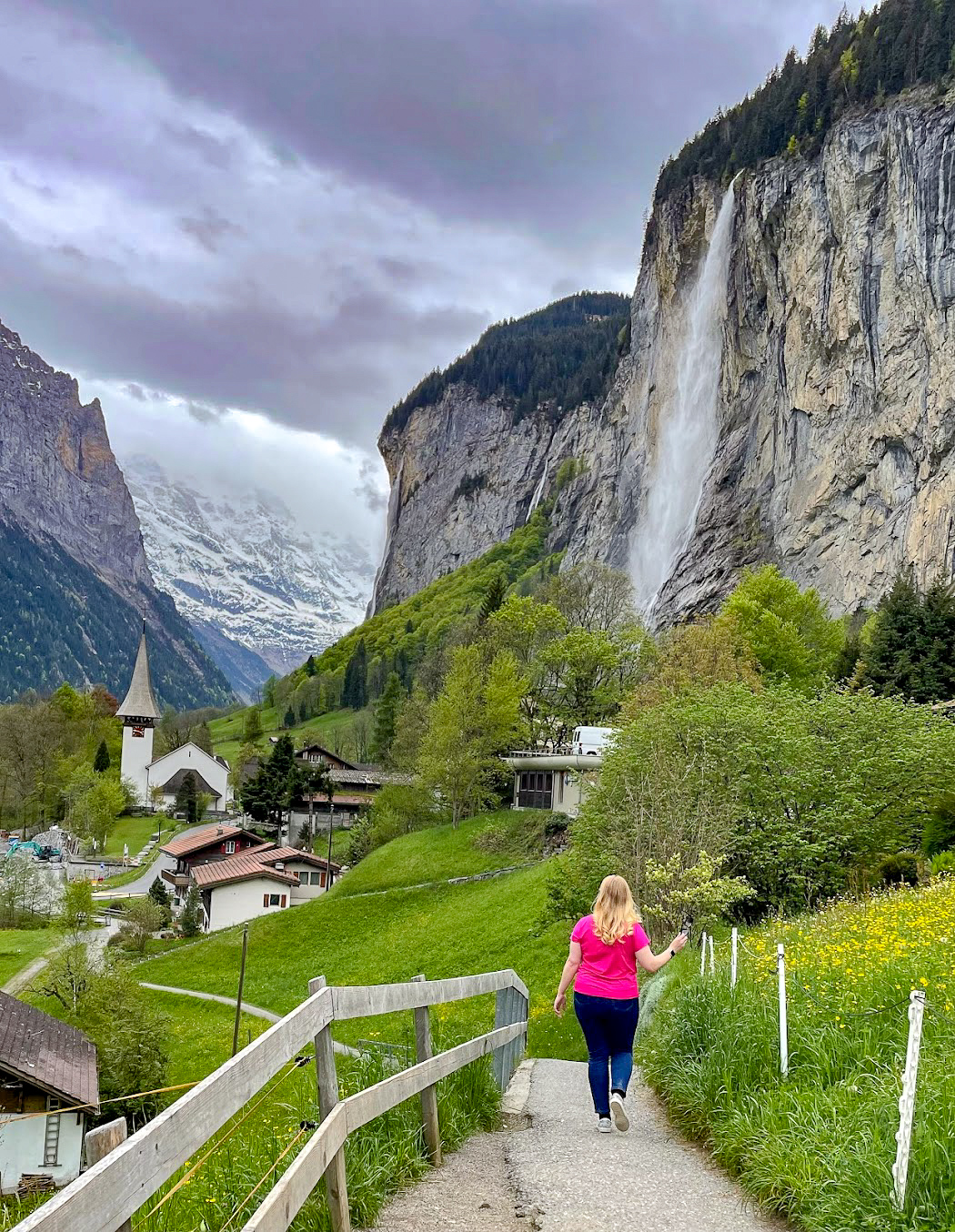


Rosie xx
